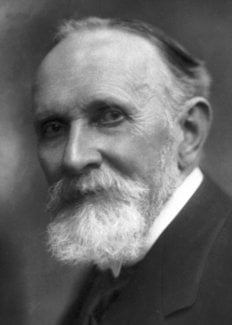Carl Spitteler
Biographical

I was born on April 24, 1845, in the little town of Liestal in the Canton of Baselland. When I was four we moved to Bern, where my father had been appointed treasurer of the newly established Swiss Confederacy. In the winter of 1856-57 I returned home with my parents. I attended the Gymnasium at Basle and lived with an aunt; later I lived in Liestal and went by train to Basle daily to attend the Obergymnasium called the «Pädagogium». Wilhelm Wackernagel and Jacob Burckhardt were my teachers there. At my father’s request I took up the study of law at the University of Zürich In 1863. Later, 1865-70, I studied theology in Zürich, Heidelberg, and Basle. After taking my theological examination at Basle I went to Petersburg at the invitation of General Standertskjöld to be the tutor of his younger children. I left for Petersburg in August, 1871 and stayed there until 1879. During this period, spent partly in Russia and partly in Finland, I worked on Prometheus und Epimetheus, which, after my return to Switzerland, I published in 1881 at my own expense under the pseudonym Carl Felix Tandem. The book was completely neglected; because it was not even reviewed I abandoned all hope of making poetry my living and was compelled instead to teach school (Neuveville, Canton Bern, 1881-1885) and work for newspapers (Grenzpost, Basle, 1885-86; Neue Zürcher Zeitung, 1890-92). In July, 1892, fate suddenly granted me financial independence. I moved to Lucerne, where I have lived happily with my family ever since. The following works of mine appeared after Prometheus und Epimetheus: Extramundana (1883), a book which I consider mediocre; Schmetterlinge (1889) [Butterflies]; Friedli der Kolderi (1891); Gustav (1892) ; Litterarische Gleichnisse (1892) [Literary Parables]; Balladen (1896); Der Gotthard (897); Conrad der Leutnant (1898); Lachende Wahrheiten (1898) [Laughing Truths]. Between 1900 and 1906 the four volumes of my epic Olympischer Frühling [Olympian Spring] were published: I. Die Auffahrt [Overture]; II. Hera die Braut [Hera the Bride]; III. Die Hohe Zeit [High Tide]; IV. Ende und Wende [End and Change].
The first two parts remained as unnoticed as all my other books. But between the publication of the second and third volumes, a musician, the famous Felix Weingartner, suddenly announced Olympischer Frühling (together with Prometheus) to the German public in a special pamphlet called Carl Spitteler, ein künstlerisches Erlebnis (München, 1904). That was the breakthrough. Felix Weingartner had discovered me for the world. To the’Swiss public I had long before been recommended by J. V. Widmann.
In 1909 a revised edition of my epic in five volumes was published; by the end of 1920 it had run into several editions. After Olympischer Frühling I published Glockenlieder (1906) [Bell Songs]; Imago (I908); Gerold und Hansli, die Mädchenfeinde (1907) [Two Little Misogynists], translated into several languages; and Meine frühesten Erlebnisse (1914) [My Earliest Experiences]…
Biographical note on Carl Spitteler
Carl Spitteler (1845-1924) revised his early Prometheus epic and published it under the title Prometheus der Dulder (1924) [Prometheus the Sufferer]. His collected works have been published in nine volumes (Zurich, 1945-50).
This autobiography/biography was written at the time of the award and first published in the book series Les Prix Nobel. It was later edited and republished in Nobel Lectures. To cite this document, always state the source as shown above.
Carl Spitteler died on December 29, 1924.
The Nobel Foundation's copyright has expired.Nobel Prizes and laureates
Six prizes were awarded for achievements that have conferred the greatest benefit to humankind. The 12 laureates' work and discoveries range from proteins' structures and machine learning to fighting for a world free of nuclear weapons.
See them all presented here.
